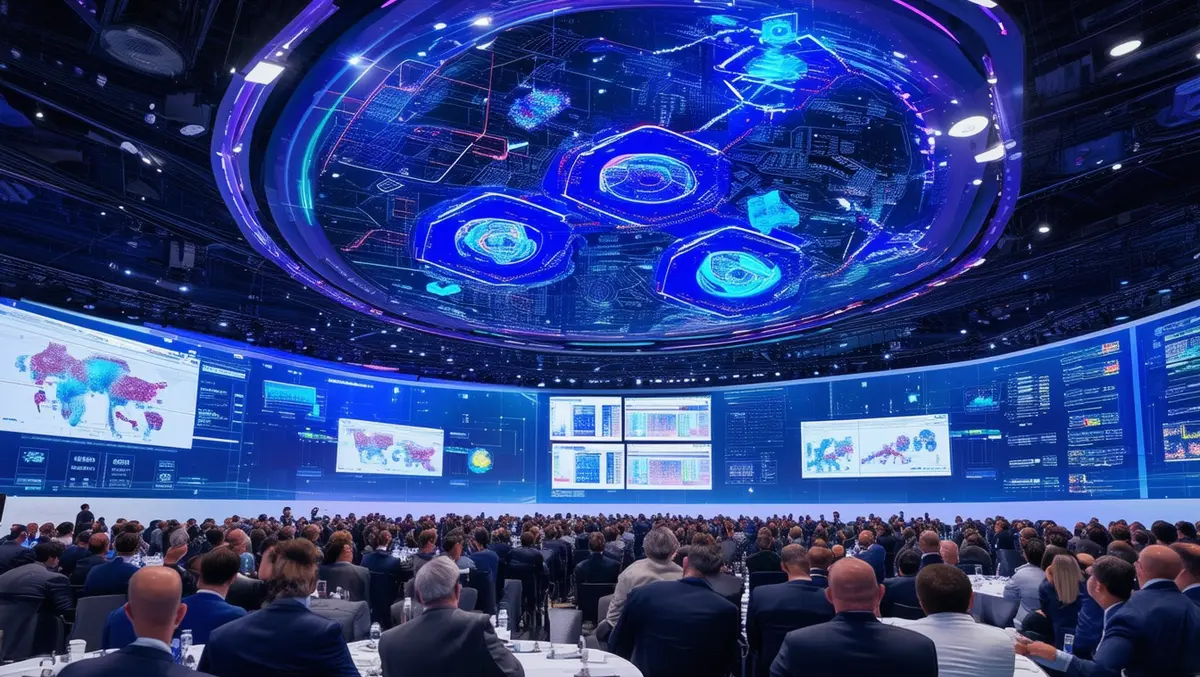
AI will significantly impact supply chains, industry debate finds
Over 150 senior supply chain and logistics professionals, including leaders from Sainsbury's and Nestle, recently convened at the 21st annual supply chain debate to discuss the impact of Artificial Intelligence (AI) on their industry. The event, hosted by SCALA, included live polling and a series of expert presentations on the future role of AI in logistics and supply chain management.
Live polling at the event revealed that 67% of respondents believe that colleagues in 'shop floor' operations will be the most impacted by AI, compared to those in managerial or senior leadership positions. Furthermore, 84% agreed that 'people and enthusiasm' is the most crucial factor for the swift adoption of AI. Conversely, 57% cited 'people' as the primary challenge in executing large-scale transformations, underlining the importance of effectively communicating the benefits of AI to staff.
During the debate, the polling indicated that nearly a quarter (24%) of the surveyed organisations are already employing AI for planning purposes. In contrast, 38% mentioned they are not yet using AI-powered tools. Despite this, many expert speakers underscored AI's potential to drive future business growth.
Meinir Childs, Director of Supply Chain at Sainsbury's, advocated for AI as a tool to reimagine the supply chain, enhance customer service, reduce waste, mitigate risks, and develop more innovative roles that do not involve data handling. However, she cautioned that it will take time to build trust in AI, stressing the need for a cultural shift to upskill colleagues.
Mike Bernon, a visiting fellow from Cranfield University, highlighted the benefits of AI in conjunction with other technologies. He particularly focused on digital twins, which can replicate the supply chain in a virtual environment. This approach could bolster environmental sustainability, provide comprehensive inventory tracking from supplier to customer, and eventually enable AI to make autonomous decisions.
Patrick Pando, Vice President of International Sales at Aptean, discussed why many AI projects fail and emphasised the importance of a 'bottom-up' strategy that wins the support of employees, particularly the incoming Gen Z workforce, to ensure successful AI implementation.
David Walker, Logistics Transformation Project Manager at Nestle, explored the application of AI in physical logistics. He showcased how 'computer vision' can enhance practical operations, citing examples such as AI-enabled cameras on machinery to identify and resolve issues more quickly, and using CCTV to monitor compliance with safety protocols, thereby informing strategic risk mitigation plans.
Roy Bridgland, Senior Industry Strategies Director at Blue Yonder, examined how AI can support inventory optimisation. He illustrated how AI aids businesses in understanding factors affecting sales, locations where products are being sold, and profitability, which can influence stock holding decisions. Additionally, he pointed out how end-to-end visibility in the supply chain can help identify disruptions, predict impacts, and devise mitigating strategies.
The event also featured Lesley O'Brien OBE, Managing Director at Freightlink Europe, who addressed the potential of AI in transport, weighing its benefits against the risks it poses to road safety. She raised concerns about the legal implications of AI-related accidents and whether AI might exacerbate the skills gap by deterring new entrants into the industry.
Chris Clowes, Associate Director at SCALA and host of the debate, remarked, "It was great to see such a fantastic turnout at this year's event, underlining that AI is a pertinent issue – and significant opportunity - for today's supply chain and logistics industry." He continued, "We had a series of lively discussions and asked some of the difficult questions. Are we going to have tools 'forced' upon us that we don't want to use? Will AI overcome, or create a skills gap? Are we moving forward at such a pace that we're not taking the time to ask questions? Are we facing a reduction in the workforce and an increase in leisure time? Will data tax become the norm? While AI can be a sensitive topic, exploring these types of issues now will be critical in supporting our future supply chains and the people who operate them."
At the conclusion of the debate, a key question was posed: "Where will AI have the greatest impact on the supply chain?" Over half (55%) of respondents pointed to large-scale supply chain transformation as the primary area. The event took place at the Advanced Manufacturing Technology Centre in Coventry, supported by partners such as the Chartered Institute of Logistics and Transport, Aptean, Culina Group, GXO, and Hormann Transdek.


